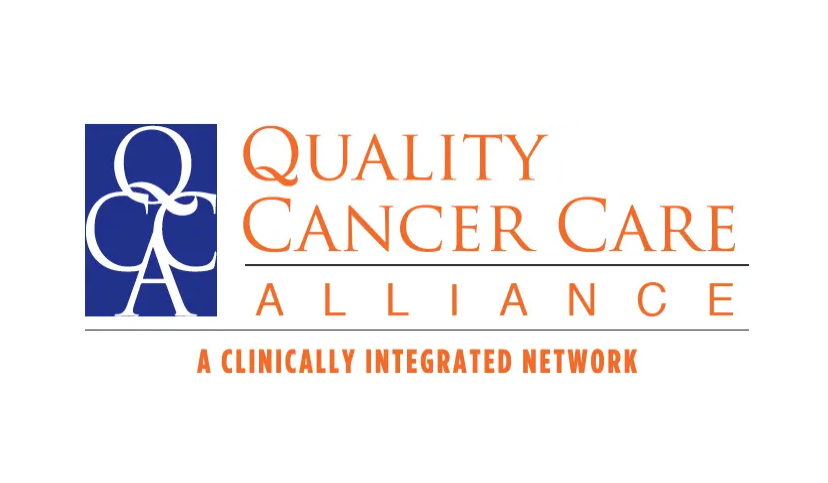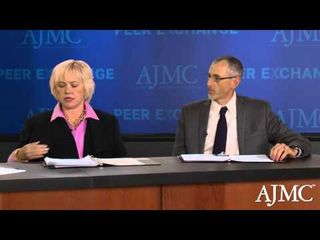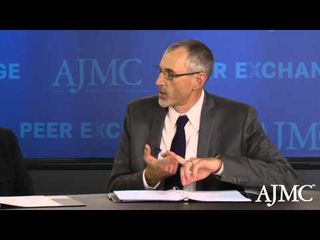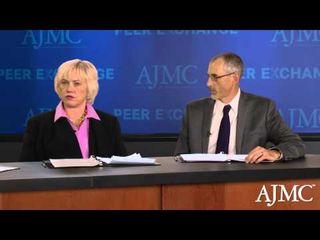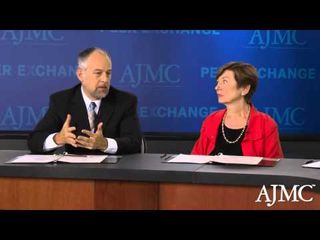
Health Care Delivery
Latest News
Latest Videos

CME Content
More News

A new report offers insights from a multidisciplinary team of experts on intrahepatic cholangiocarcinoma (iCCA).

Anchalee Avihingsanon, MD, PhD, HIV-NAT, Thai Red Cross AIDS Research Centre, Bangkok, Thailand, is principal investigator of the ALLIANCE trial.

Entresto (sacubitril/valsartan) is approved for use in adult and pediatric heart failure, and previous research shows it to be cost-effective in the long term.

Infants born between the 23rd and 25th weeks of pregnancy, classified as extremely low gestational age newborns, are surviving in increasing numbers, note study authors, and with that is growing clinical interest in their long-term sequelae, including pulmonary hypertension (PH).

Ketamine has been safely used as an anesthetic in the hospital environment for years, but with the proper training, it can also be administered by a medical professional in a clinical setting to provide pain relief.

Early genomic testing could identify the children who are most at risk and provide opportunities to intervene as early as possible.

The findings add to previous research on similar outcomes between psoriasis and cardiovascular disease, using a Mendelian randomization study.

Despite advances made against the disease, researchers note that breast cancer still remains a top cause of cancer-related mortality in women around the world.

Brindley Brooks, who founded HS Connect (HSconnect.org), a patient advocacy group for those affected with hidradenitis suppurativa (HS), discussed step edits and other barriers to treatment caused by insurance requirements in the management of HS.

This study investigated how an initial diagnosis influences delivery of second opinions concerning skin cancers, including the possibility of an incorrect diagnosis.

Patrick Burnett, MD, PhD, FAAD, chief medical officer of Arcutis Biotherapeutics, discusses the need for increased research and awareness on intertriginous disease in psoriasis.

Three approaches—prophylactic immunoglobin, antibiotics, and vaccinations—were investigated for their effectiveness at infection prevention in 3 hematological malignancies.

When the pandemic public health emergency eventually ends, so will the various waivers and regulatory flexibilities enacted by HHS during the COVID-19 pandemic, including the ability to provide acute hospital care at home, unless Congress acts.

Coverage of our peer-reviewed research and news reporting in the health care and mainstream press.

Patients were more likely to accept intervention from a psychologist if they received regular questionnaires.

The authors drafted a “Shared Values of Collaborative Care” document with fundamental principles to make better group decisions in implementing collaborative care.

The therapy for intrahepatic cholangiocarcinoma (ICC) led to responses in about a quarter of patients and disease control in 85%.

Frequent productive cough was experienced by patients with asthma and/or chronic obstructive pulmonary disease (COPD), with symptom prevalence increasing with higher disease severity, according to the results of a recent study.

Despite decreasing trends observed in the global burden of alopecia areata, low-income countries and Western Sub-Saharan Africa regions continue to exhibit rising incidence and disability-adjusted life-years rates.

Policy observers and industry stakeholders debate the possible spillover effects of Medicare drug pricing reform in the employer-based insurance market; a California federal judge rules Walgreens could be held liable for not investigating suspicious orders of opioids in San Francisco; a blood test performed the day of a traumatic brain injury (TBI) can predict which patients may die and who may survive with a disability.

The usefulness of sentinel lymph node (SLN) biopsy was investigated among patients with melanoma and SLN metastases.

Most patients with atopic dermatitis had flunctuating levels of depressive symptoms, with having public or no insurance, more severe itch, and skin pain cited as additional predictors of adverse mental health outcomes.

Acadia Pharmaceuticals’ pimavanserin (Nuplazid) was not extended by the FDA to include Alzheimer-related psychosis; HHS/Health Resources and Service Administration vow to strengthen rural health care; a new deal has the United States paying $26 million for Siga Technologies’ Tpoxx.

The REVEAL-HF study investigated using risk scores to improve patient outcomes through targeted interventions, including treatment initiation and intensity, end-of-life care, and hospitalization and mortality risks.

In this episode of Managed Care Cast, we speak with Sachin Jain, MD, MBA, SCAN Group and Health Plan's president and CEO, about how the organization made 10% of senior managers’ annual bonuses dependent on how well the gap in medication adherence among diverse populations was reduced.



